IMDEA Networks

Archives: Events
Seminar-IP Autoconfiguration for Vehicular Networks
More information about Marco Gramaglia The seminar will be conducted in English
Read more arrow_right_altWhat do opportunism, data mining and coordination have to do with system-level optimization of wireless networks?
We present a system-level framework to mitigate interference using coarse grained coordination of transmissions across base stations. Our approach is based on collecting and mining measured data capturing a user population's diversity in sensitivity to interference. The talk introduces the abstractions and optimization framework we have devised to enable this type of coordination. The talk is in two parts addressing what we deem to be key areas of inquiry.
Read more arrow_right_altOptimization, Pricing and Control in Networks
In the last decade, a new theoretical foundation for quantitative network research has emerged. Its key ingredients are the following: economic models to formulate network resource allocation as a convex optimization problem; use of optimization methods to devise decentralized solutions to these problems, in terms of dynamic adaptation of the relevant variables; tools of control theory to understand the dynamic properties of these methods. The resulting body of theory has been highly successful in providing models for TCP congestion control, describing how local protocols should be designed to allow for interesting global properties to emerge. From here, recent research has advanced this methodology to other layers of the protocol stack. In this course we will provide an introduction to this interdisciplinary field of research.
Read more arrow_right_altxIP - eXtending IPv4 address space
Instructor:
Lugar:
Fecha: 12th May, 2009, 10:00 – 11:00
Organización:
Read more arrow_right_alt
Load Balancing is Not Optimal in Wireless Systems With Dynamic Interference
We study the impact of policies to associate users with base stations/access points on flow-level performance in interference limited wireless networks.
Most research in this area has used static interference models (i.e., neighboring base stations are always active) and resorted to intuitive objectives such as load balancing. In this paper, we show that this can be counter productive, and that asymmetries in load can lead to significantly better performance in the presence of dynamic interference which couples the transmission rates experienced by users at various base stations. We propose a methodology that can be used to optimize the performance of a class of coupled systems, and apply it to study the user association problem. We show that by properly inducing load asymmetries, substantial performance gains can be achieved relative to a load balancing policy (e.g., 15 times reduction in mean delay). We present a novel measurement based, interference-aware association policy that infers the degree of interference induced coupling and adapts to it.
A Control Theoretic Framework for Performance Optimization of IEEE 802.11 Networks
More information about Paul Patras The seminar will be conducted in English
Read more arrow_right_altFrom Networking Research to Hapto-Virtual Multimedia Communications
Multimedia Communications, involving traditional “media” such as audio, video, text, 2D graphics, have become parts of everyday e-life. New digital media, such as Virtual Reality and Haptics, have now added new dimensions to multimedia tele-collaboration. This presentation will introduce basic issues on Distributed and Collaborative Virtual Environments, where the feeling of “touch” (haptics) and its transmission over networks is becoming essential. Various applications will be described ranging from industrial training to e-commerce to medical education, and the current research at the DISCOVER research lab, Univ. of Ottawa will be outlined.
Read more arrow_right_altClubADSL
"ADSL is becoming the standard form of residential and small-business broadband access to the Internet due, primarily, to its low deployment cost. These ADSL residential lines are often deployed with Access Points (AP) that provide wireless connectivity. While the ADSL technology has showed evident limits in terms of capacity, the short-range wireless communication can guarantee a similar or higher capacity. Even more important, it is often possible for a residential wireless client to be in range of several other APs belonging to nearby neighbors with ADSL connections. We introduce ClubADSL, a prototype wireless station that can connect to several multi-frequency APs in range and aggregate their available ADSL bandwidth. ClubADSL achieves a fair bandwidth among the concurrent stations and minimizes the impact of end-to-end latency on the system performance. We show the feasibility of such a system in seamlessly transmitting TCP traffic, and validate its experimental implementation over commodity hardware in controlled scenarios."
Read more arrow_right_altBetting on Challenges for Flourishing Ambient Intelligence
This talk will present a brief overview of systems, technologies and applications that are part of Ambient Intelligence (AmI). It is also the purpose of this talk to bring together researchers for inspiring innovation in the evolution of AmI and for answering the question: What are the challenges we need to bet on?
Read more arrow_right_altMultipath TCP
Normal TCP/IP operation is for the routing system to select a best path that remains stable for some time, and for TCP to adjust to the properties of this path to optimize throughput. A multipath TCP would be able to either use capacity on multiple paths, or dynamically find the best performing path, and therefore reach higher throughput. By adapting to the properties of several paths through the usual congestion control algorithms, a multipath TCP shifts its traffic to less congested paths, leaving more capacity available for traffic that can't move to another path on more congested paths. And when a path fails, this can be detected and worked around by TCP much more quickly than by waiting for the routing system to repair the failure.
Read more arrow_right_alt

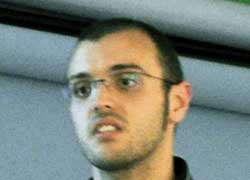
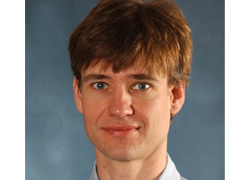
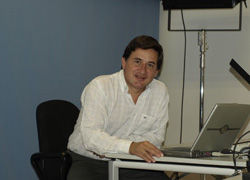
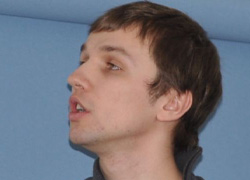
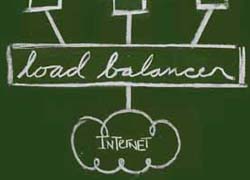
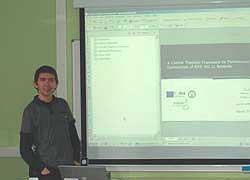
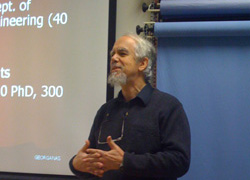
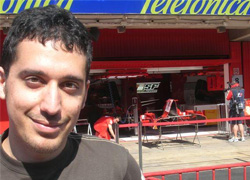
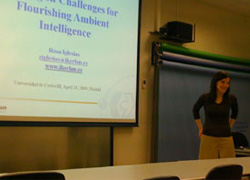
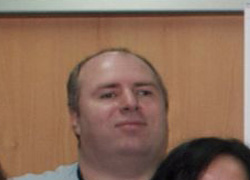
Recent Comments